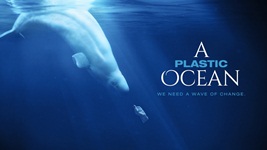A Plastic Ocean – We need a wave of change
04 February 2016
“The Ocean is choking ... On our plastic waste"

A Plastic Ocean is a new feature-length adventure documentary that brings to light the consequences of our global disposable lifestyle. In A Plastic Ocean an international team of adventurers, researchers, and world-saving heroes embark on an expedition around the globe that delves into the unknown lurking on and beneath our seemingly pristine and remote waters.
The results will astound viewers – just as it did the adventurers who captured never-before-seen images of marine life, plastic pollution, and its ultimate consequences for human health. During its four-year production period, this adventure documentary was filmed in 20 locations around the world in beautiful and chilling detail to document the global effects of plastic pollution – and introduce workable technology and policy solutions that can, if implemented in time, change things for the better.
The OCR Geography team were lucky enough to attend the launch of the official trailer in London on Wednesday 3 February as one of the many organisations supporting this project.
We were treated to a fascinating introduction to the documentary by the producer Jo Ruxton who, seven years ago, joined an expedition to the so-called Great Pacific Garbage Patch in the North Pacific Gyre, 1,500 miles off the coast of San Francisco, to ascertain its impact. When the expedition discovered free-floating microplastics instead of an anticipated solid mass that could be contained, Jo knew she had to begin the film that would become A Plastic Ocean.
Jo spoke passionately of her journey with the documentary with tales of filming in Corsica, Trefoil Island, Lord Howe Island, Tuvalu and more. She explained the various ways that plastics enter oceans and how toxins then find their way into marine ecosystems and food chains – and therefore the food chains of anyone who eats fish. She revealed some of the stories which did not make the final film and seeing what missed the cut increased the anticipation for the trailer and for the final film. The trailer brought applause from all and an appreciation of the true scale of this global issue.
We thought we could use plastic once and throw it away with negligible impact to humans and animals. That turns out to be untrue. How can something be disposable when it is indestructible? We produce over 300 million tonnes of plastic every year. Equivalent to the combined weight of all the adult humans on earth. Nearly half of this we use just once then throw it away.
David Jones, an Executive Advisor for the film, followed the trailer by clarifying that we need a wave of change. He explained the difference between a predicament where we develop responses to an inevitability, such as climate change, and a problem where we still have the opportunity to offer a solution. Plastic in the oceans is still a problem. We have the time and technology to do something about it.
“Greatest threat to our planet is the feeling someone else will save it” – Robert Swan.
Straight from Plastic Oceans: “On February 4 people and organizations across the world are working together to promote a trailer for an extraordinary film via social networks. A Plastic Ocean documentary has been a labour of love for experts everywhere who understand the impact we are having on the oceans and our food chain. We are looking for a major global film distributor. The more reach the trailer has, the more good the film will do when it's released. Have a look at the trailer and then be an ambassador and pass it on.”